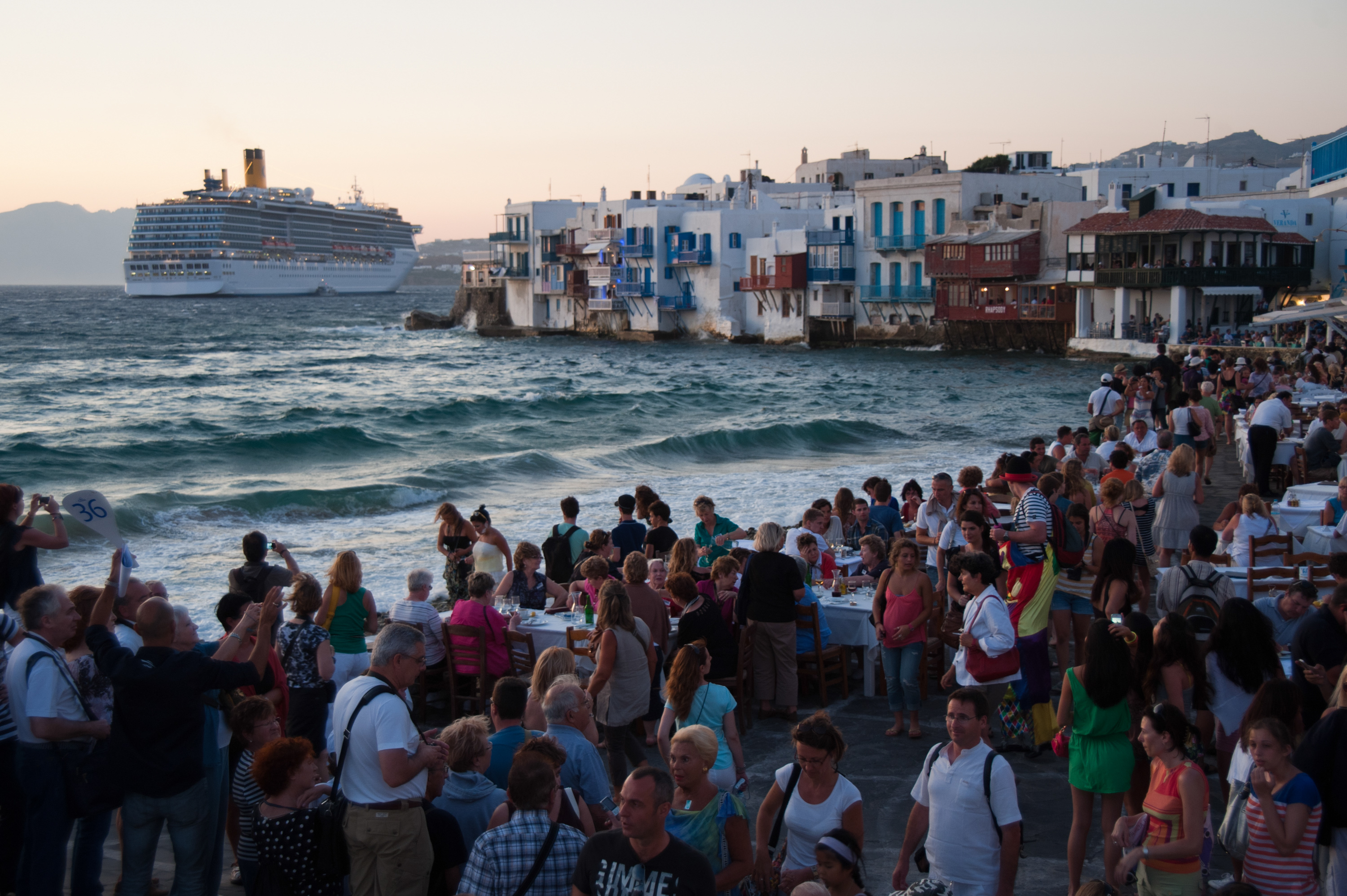Mass tourism as a social phenomenon is relatively new, with its numbers rising dramatically in recent years. Originating in the early 20th Century, the phenomenon experienced its first growth boost in the 1930s. Today, people make over one billion international trips a year, double those made 20 years ago. The exponential increase is linked with overall greater global prosperity, cheaper air travel, and an increased availability of hotels and accommodation services worldwide. The rise of websites such as Airbnb, and vacation packages that include air travel and accommodation, have made it both easier and more financially accessible for diverse social groups to visit popular international locations. While travelling used to be an experience for the privileged few that could afford it, tourism has now become accessible to a larger portion of the population. Although, the industry has brought large revenues to the tourist harboring countries, the constant yearly influx of millions of people has become largely unsustainable. Mass tourism is responsible for environmental problems, cultural commodification, and a general decline in the living standards of the locals.
Tourism on a large scale has been shown to increase pollution and be generally detrimental to the local natural environment. To support the presence of large numbers of people, roads, hotels, and parking lots need to be built to enable the transportation and accommodation of tourists. This development is clearly positive for urban development; however, it is often done at the expense of natural habitats such as forests. This has been happening in the Alps, for example, where climate change is foreseen to increase the frequency of droughts and heavy rainfall. High levels of carbon emissions result from the frequent and increased use of cars, trains, and airplanes. In 2013, Carbon Dioxide emissions increased by 2.9 ppm, which has been the largest annual increase since 1984. Moreover, airlines do not pay taxes on fuel and avoid carbon footprint-related charges thus further pushing down flight prices and incentivizing ecologically harmful tourism.
Culture commodification is an unfortunately common consequence of mass tourism. The availability of a variety of vacation packages to choose from results is the artificial idea that one package is equivalent to another, in terms of holiday experiences. This, as a result, commodifies the countries in question. Moroccan writer Marie-Françoise Lanfant states that “when tourism increases, culture declines.”
Mass tourism also results in a decline of living standards of local residents. Higher demand for basic items such as food, water, infrastructure and housing due to tourism causes an increase in the prices for locals, as well; for example, in Venice house prices have risen to the point that local Venetians can no longer afford to live there. Moreover, foreign tourist agencies, which bring groups of their citizens for tourism, keep much of the economic profit. Lastly, when vast numbers of tourists visit simultaneously, local living spaces become crowded, thus reducing the general wellbeing of the local residents. Venice, which has a population of 55,000 residents, received 28 million tourists in 2017. Caberlotto, a 25-year-old masters student in Venice who lives in an apartment with his parents, explains that “the city’s population is now shrinking by about 1,000 people a year as property prices and rents soar.” Such a level of mass tourism negatively affects the day-to-day lives of local Venetians.
The influx of tourists at any one time should be regulated. The government of the tourist harboring country should act to limit the number of people who can enter, and set a limit to protect the well-being of the environment and the locals. This could be done by increasing permanence taxes, and actively regulating the number of people that can enter the country and use transport systems. More importantly, however, tourists should revise their view of travelling. Rather than regarding their trip simply as vacation experiences and adventures, tourists should be more conscious of their impact as visitors, and should be more appreciative of the cultural and natural heritage they are witnessing.

The exponential increase is linked with overall greater global prosperity, cheaper air travel, and an increased availability of hotels and accommodation services worldwide.
Excellent information you are Providing, I’m inquisitively waiting for new ones. I wish you could write more. Thank you so much, keep it up